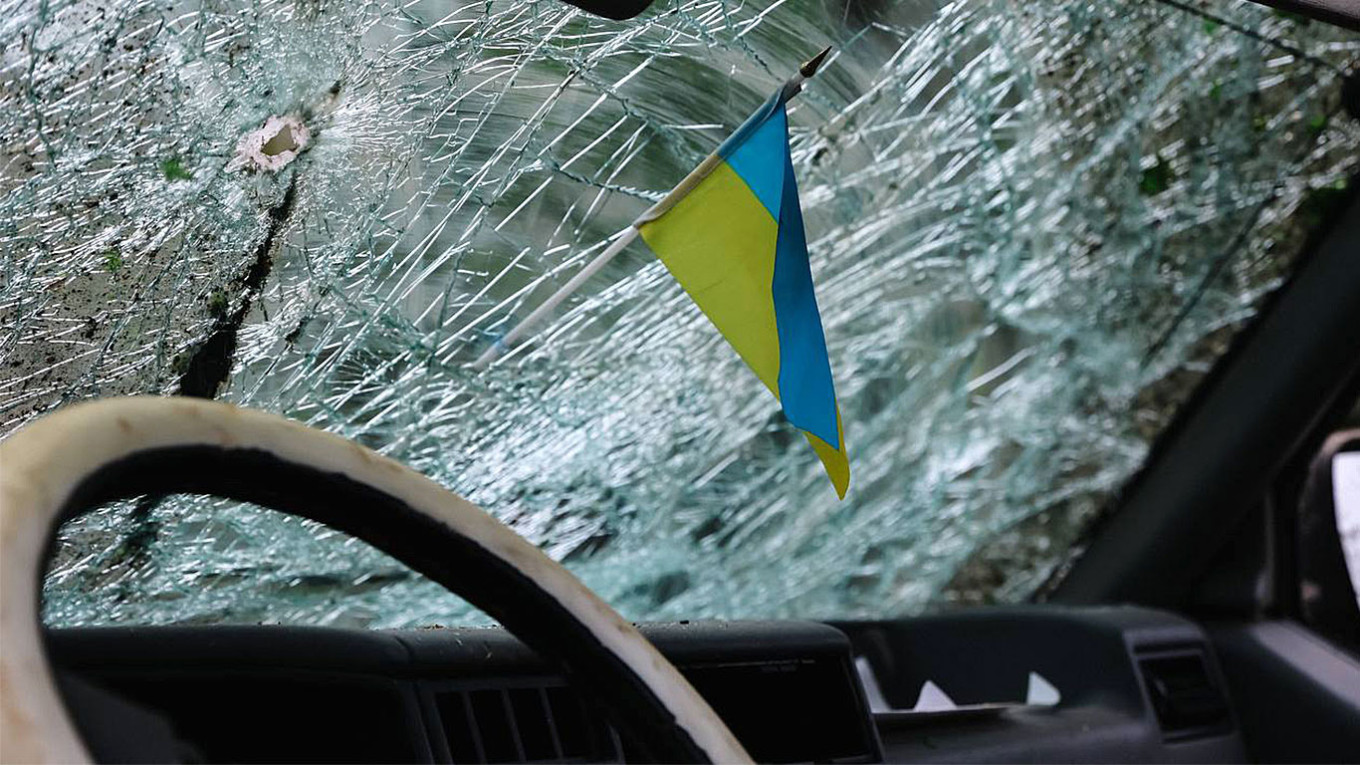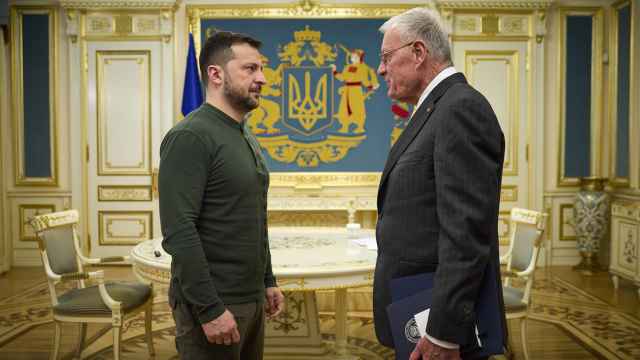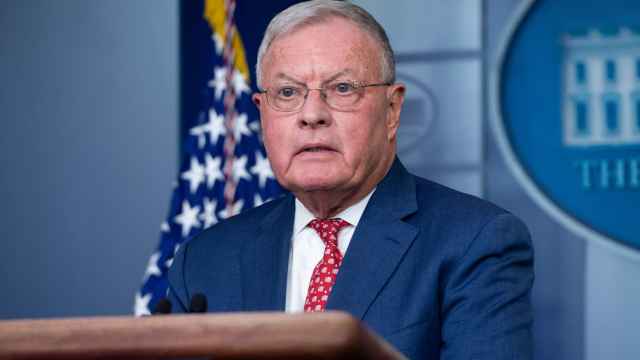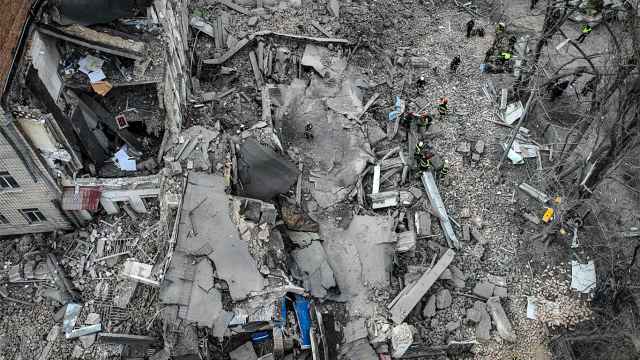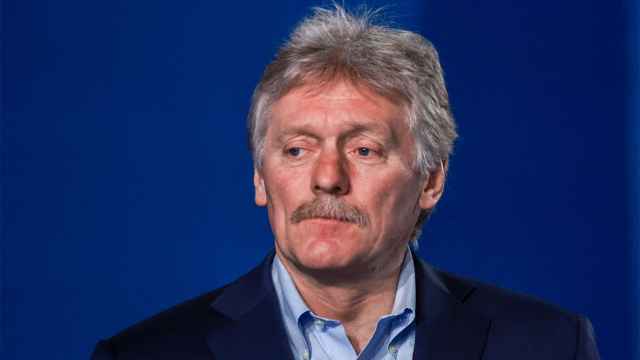With Donald Trump’s victory in the U.S. presidential election, political and diplomatic circles have been buzzing with talk of peace negotiations taking place as early as this year. Several NATO countries are discussing sending peacekeepers to Ukraine after the end of hostilities or establishing demilitarized zones there.
All this seems premature at best. The war is not over yet and President Vladimir Putin has not achieved his goals. At the same time, the Western “peacekeeping” fuss only conveys their lack of a sane strategy for ending the war. Over the past three years, no one has proposed a strategy that understands the future security architecture in Europe and the world. Furthermore, the West’s lack of decisive action to support Ukraine has created a vacuum that Moscow will be only too happy to fill.
Before we get involved in any negotiations we must establish what those negotiations should be about. “To end the war” is a good slogan to win votes yet is too vague to understand what it could look like in real life. How are the hostilities to be stopped? What will be the positions of the warring parties? Who controls which regions? What measures will be implemented to guarantee the peace and who should do it? Etc. There are dozens and dozens of such questions. However, even these questions are premature.
First, any negotiator or facilitator must realize what the war is about and what each side’s goals are. Here we see a dangerous abyss in the West’s thinking with politicians maintaining that Putin wants some territorial gains. This cannot be further from the truth.
Putin and his entourage prioritize their political survival, which depends on preserving the established regime of power. Since all opposition and resistance to the regime inside the country has been successfully suppressed, the Kremlin sees the West, primarily the United States, as the main threat, which, according to Putin’s elite – mostly KGB officers who cling onto their Cold War mentality – seeks to destroy Putin’s regime and Russian civilization, which, they say, is the last bastion against unchecked American dominance of the world.
Moscow sees the only way to protect itself from hostile U.S. activities is to divide the world into isolated spheres of influence. Putin seeks to impose his personal sovereignty over at least the post-Soviet space and — preferably — the former Warsaw Pact by getting Washington to recognize his exclusive rights to the region. By doing so, he hopes to put the American hegemonists in their place and preserve his power.
This is why the Kremlin decided to repeat the 2014 annexation of Crimea on a larger scale by staging a “small victorious war” with Ukraine. Conquering this country would give Putin the status of a true “gatherer of Russian lands,” a great and invincible ruler, solidifying his popularity for years to come. Most importantly, it would demonstrate to the entire world that neither the U.S. nor NATO — the greatest military power on the planet — can do anything to stop Russia. Putin’s Russia is the winner. It is now Moscow and its allies like China and Iran — not the West — that have the final say in world politics.
Thus, the war Putin launched upon Ukraine is an assault on the current world order without directly confronting the West. It would not be an overstatement to describe this war as the first phase of a new world war designed to redraw the political map of our planet. Moscow has been outspoken about its plan to correct what it sees as a historic wrong that left Russia on the international sidelines.
As of January 2025, the Russian army is advancing very slowly and incurring huge losses. Achieving a victory through military means alone will be very difficult. Therefore, Moscow’s current strategy is to take Ukraine by attrition, launching constant strikes on civilian and energy infrastructure and trying to sow discord in the West to undermine the unity needed to continue their military support for Ukraine.
Putin expects that over time, war fatigue will sweep both Ukrainian society and Western countries, especially Europe, leading to a reduction or even an end to military support for Kyiv.
The Russian leader is ready to use any attempt by the West to bring Russia and Ukraine to the negotiating table. If it comes to even a temporary truce, Putin will demand significant concessions that would be used as a basis for subjugating Ukraine with increasing political and military pressure.
Since the initiative for negotiations does not come from the Russian government, Moscow will decide what is and is not acceptable. Putin can always reject any suggestions as he expects he will succeed eventually by grinding down Ukraine.
Obviously, Putin will be categorically opposed to any remote chance of Ukraine’s admission to NATO as well as any sending of NATO troops to Ukraine to be stationed in a demilitarized buffer zone, which would de facto mean Ukraine is under NATO’s protection.
No ceasefire agreement, even a temporary one, can be signed without a commitment to lift all or at least part of the sanctions on Moscow – this will be one of Putin’s main conditions.
Judging from the Kremlin’s previous statements, a deal Moscow would find acceptable looks like this:
- Ukraine and Western countries recognize the annexation of “new territories,” including Zaporizhzhya and Kherson oblasts, as well as Crimea, Donetsk and Luhansk;
- The withdrawal of Ukrainian forces from Russia’s Kursk region;
- Ukraine will reduce its armed forces and defense capabilities per Russian demands, as announced in the 2022 Istanbul communique. This demilitarization would happen along with an internal political cleansing under the banner of “denazification” so that important positions are filled by pro-Russian stooges;
- A final settlement is possible only after Ukraine has elected a government that the Kremlin deems legitimate;
- The U.S. and EU will lift all sectoral and personal sanctions they have previously imposed on Russia and its citizens;
- They will also have to hold negotiations on compensations for the damage Russia has suffered from the sanctions;
- The U.S. and NATO will be required to return to the discussion of the December 15, 2021 “ultimatum” and to conclude the draft treaties on security guarantees proposed by Moscow at that time.
Such an agreement can hardly be called an equitable and mutually beneficial deal. Under these terms, Putin will weaken Ukraine to the point where it loses its independence and demonstrate to the world the inability of NATO and the United States in particular to resist his ambitions. In the eyes of the international community, this will symbolize the further decline of Western power.
The U.S. and NATO's huge military and economic superiority over Russia will be shown to be nothing but a mirage since they are not willing to use their leverage. Thus, the world will see that the West is weak and does not deserve to occupy the top of the global hierarchy.
This demonstrated weakness will make any peace short-lived. Moscow and other revisionists will seize on this to attack the West’s global interests. It is obvious that any temporary solution to the issue — a ceasefire or a truce — will cause further problems for Ukraine and the West.
Putin’s objective is not so much to win as to humiliate the United States. The idea that both sides can benefit from a settlement has always been alien to Russian political thought.
If Ukraine and her Western allies reject such a deal they will be accused of warmongering, whereas Putin will smile and say he did his best. Russian propaganda will be furious in depicting the Western camp in the darkest colors while Russian troops routinely continue fighting and bombardments.
Hence the simple conclusion: a compromise with Putin that also respects the interests of Kyiv and its allies is impossible in principle. Putin will never be satisfied unless his enemy is weakened. There is no common ground. One side must recognize the other’s superiority.
The conclusion that should be deducted from this is simple – this conflict is already shaping the contours of a new world. The challenge cannot be simply negotiated about. A wise and thorough strategy is required to stop the war without inviting other would-be revisionists to play this game further. The question that stands before the West is simple – to win or to lose.
There is no way both sides can come away from these discussions in stronger positions.
A Message from The Moscow Times:
Dear readers,
We are facing unprecedented challenges. Russia's Prosecutor General's Office has designated The Moscow Times as an "undesirable" organization, criminalizing our work and putting our staff at risk of prosecution. This follows our earlier unjust labeling as a "foreign agent."
These actions are direct attempts to silence independent journalism in Russia. The authorities claim our work "discredits the decisions of the Russian leadership." We see things differently: we strive to provide accurate, unbiased reporting on Russia.
We, the journalists of The Moscow Times, refuse to be silenced. But to continue our work, we need your help.
Your support, no matter how small, makes a world of difference. If you can, please support us monthly starting from just $2. It's quick to set up, and every contribution makes a significant impact.
By supporting The Moscow Times, you're defending open, independent journalism in the face of repression. Thank you for standing with us.
Remind me later.



